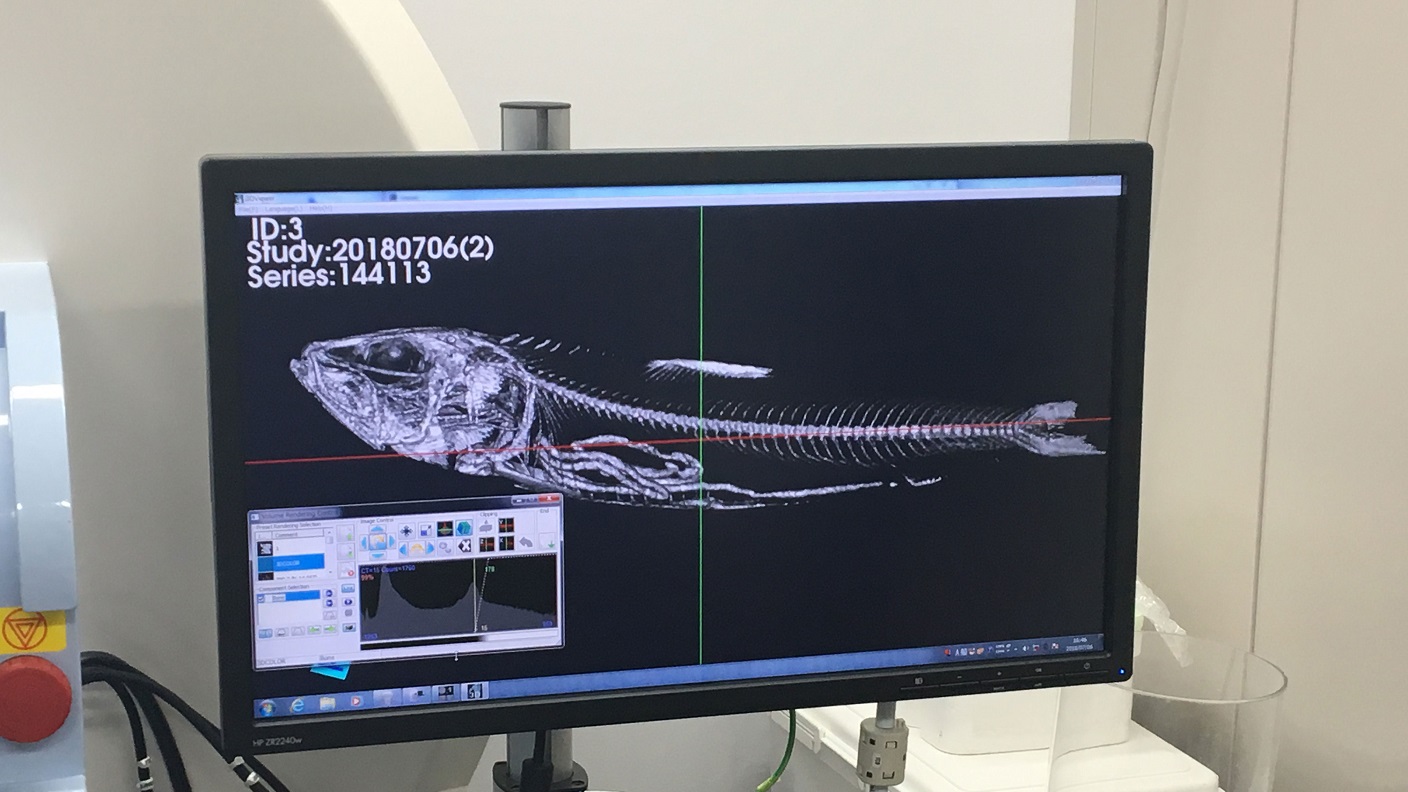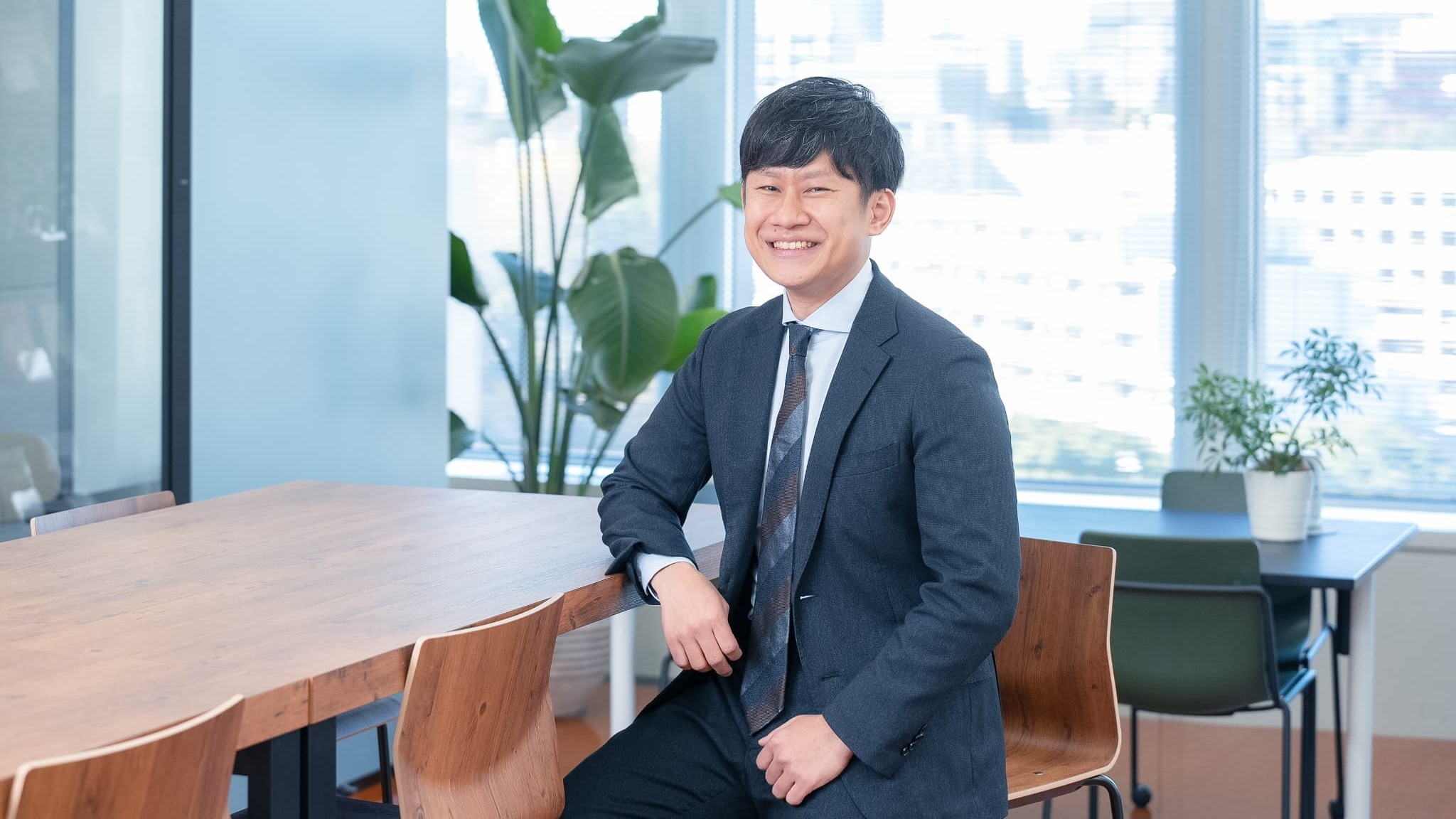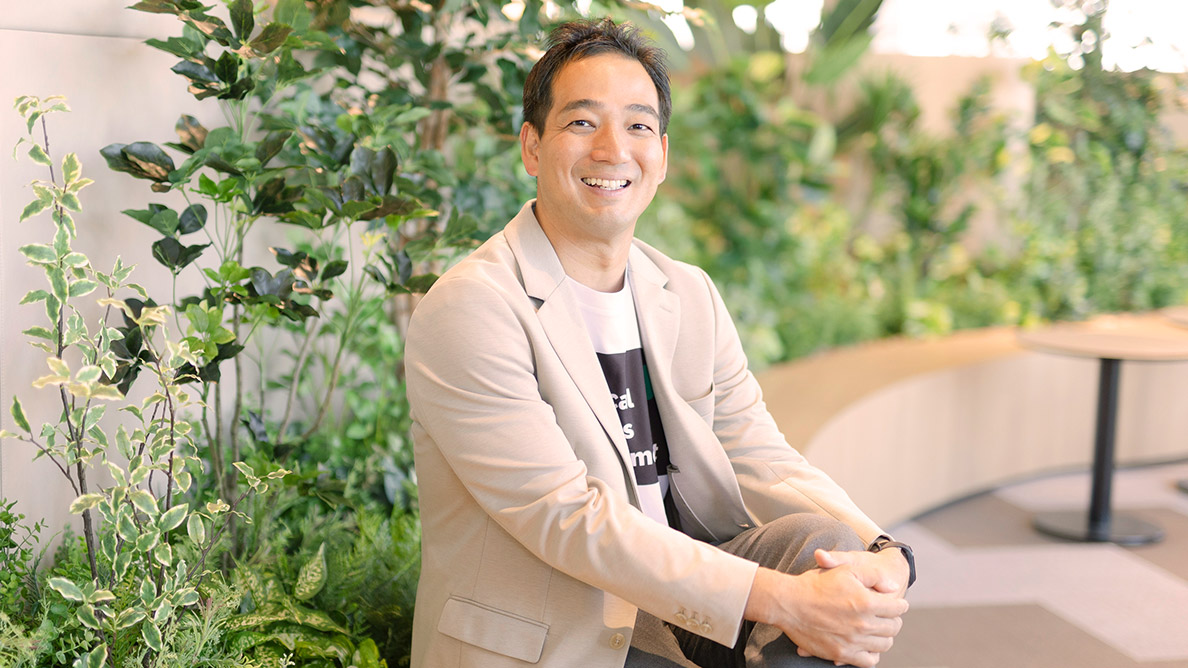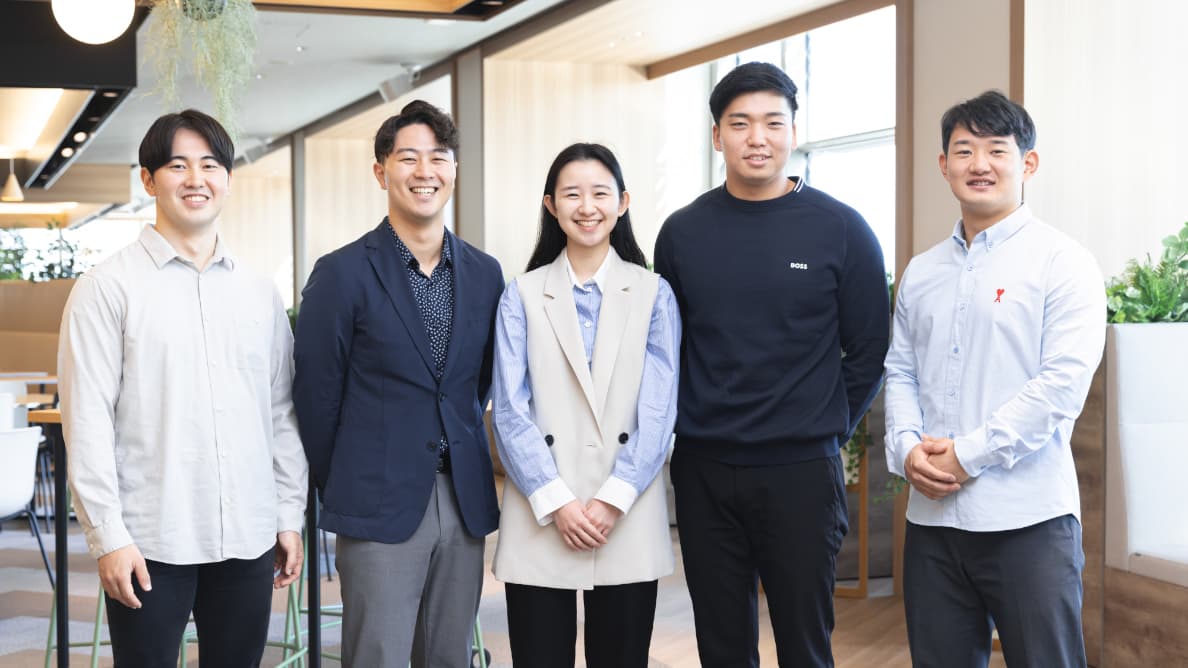
- TOP
- Enriching+TOP
- SPI accelerates the development of biotech and pharmaceuticals industry
2023.10.1
Business
SPI accelerates the development of biotech and pharmaceuticals industry
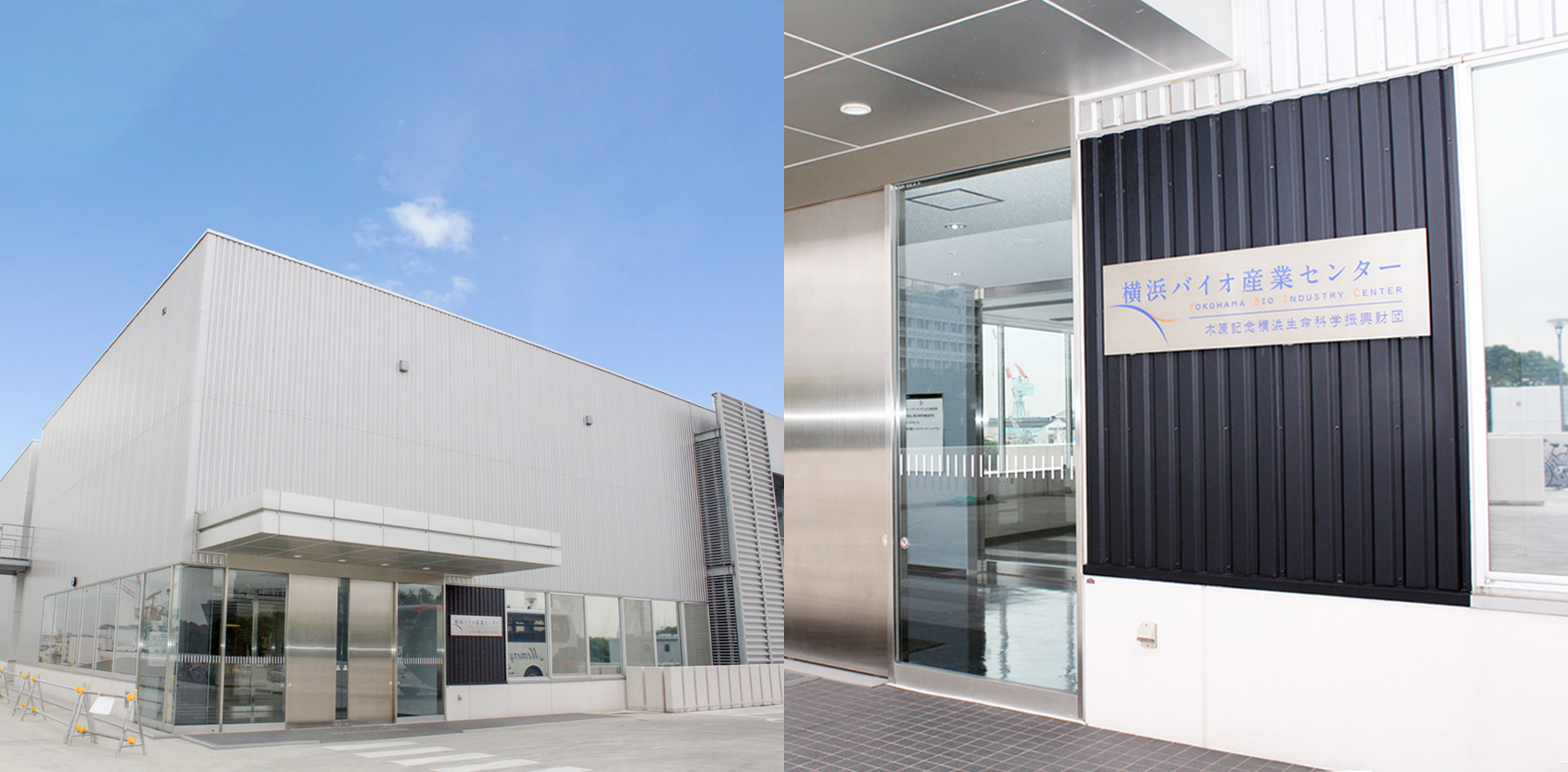
Summit Pharmaceuticals International (SPI) is engaged in the pharmaceuticals and cosmetics business as the core company of the medical science business in the Sumitomo Corporation Group. In the pharmaceuticals business, SPI has a one-stop system supports everything from drug discovery research to drug manufacturing. In the cosmetics business, SPI engages in the procurement of ingredients, proposals for new products, and contract manufacturing. In early July 2018, we visited two SPI’s laboratories : the API Laboratory and the Yokohama Support Center.
This content was originally published in August 2018.
-
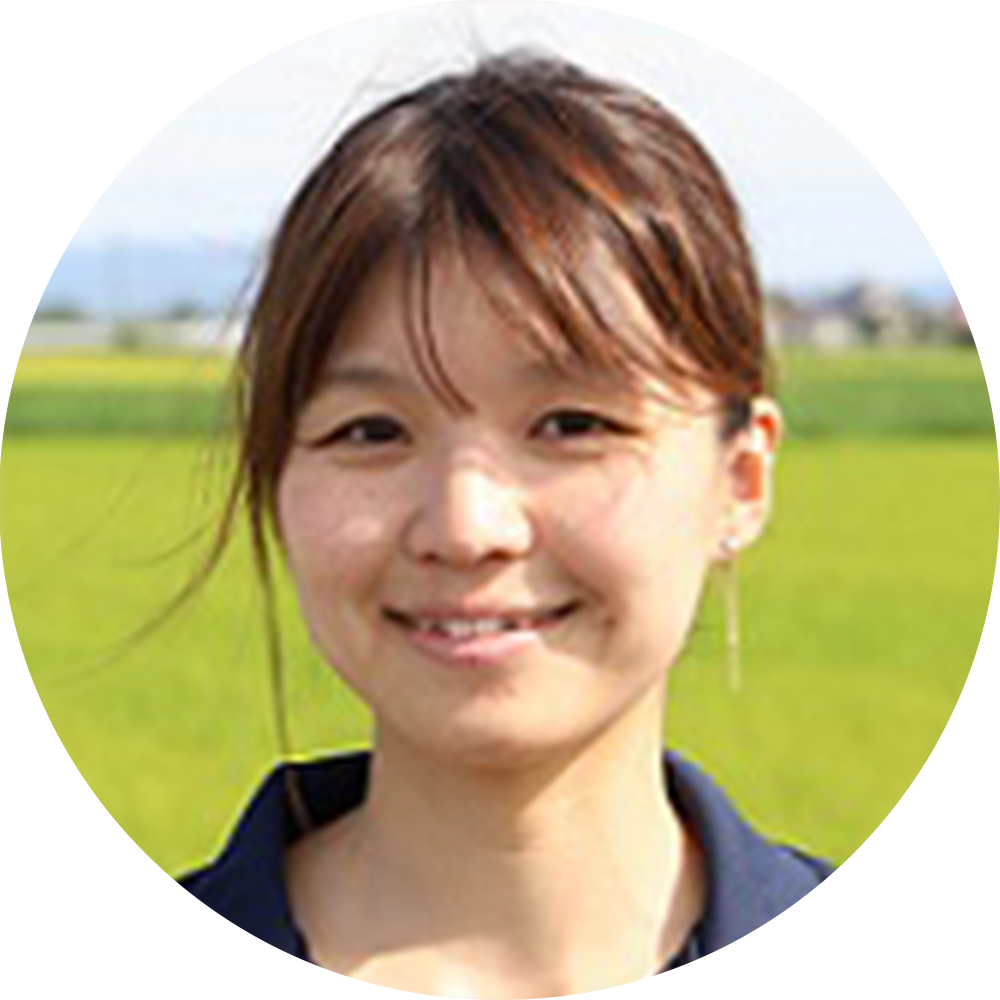
Mass Media Relations Team, Corporate Communications Department
Mai Fukada,
Engaged in creating introductory videos and media relations for the Metal Products Business Unit and the Media & ICT Business Unit. Until June 2018, was involved in the Life Science Division of the Mineral Resources, Energy, Chemical & Electronics Business Unit, which includes SPI. This article concludes her involvement in this division, due to reassignment. Gave up chemistry in high school when the benzene ring first appeared on the textbook, and decided to pursue humanities instead.

The API Laboratory supports drug safety
SPI’s API Laboratory is located at the Kanagawa Science Park in Takatsu-ku, Kawasaki City. SPI’s Pharmaceuticals Business Department procures ingredients for drugs such as active pharmaceutical ingredients (API) and intermediates from both domestic and international manufacturers, and sells them to client pharmaceutical companies. The main role of the API Laboratory is analyzing procured drug ingredients before delivery by utilizing over 30 types of analytical equipment to ensure that they satisfy the quality standards required by the client.
In the pharmaceuticals industry, there is a standard called Good Manufacturing Practice (GMP). GMP, designed to ensure that drugs are safe and of consistent quality, specifies the environment of the manufacturing site that the manufacturer should maintain, the method of managing products, procedures for testing drug quality before shipment, and others.
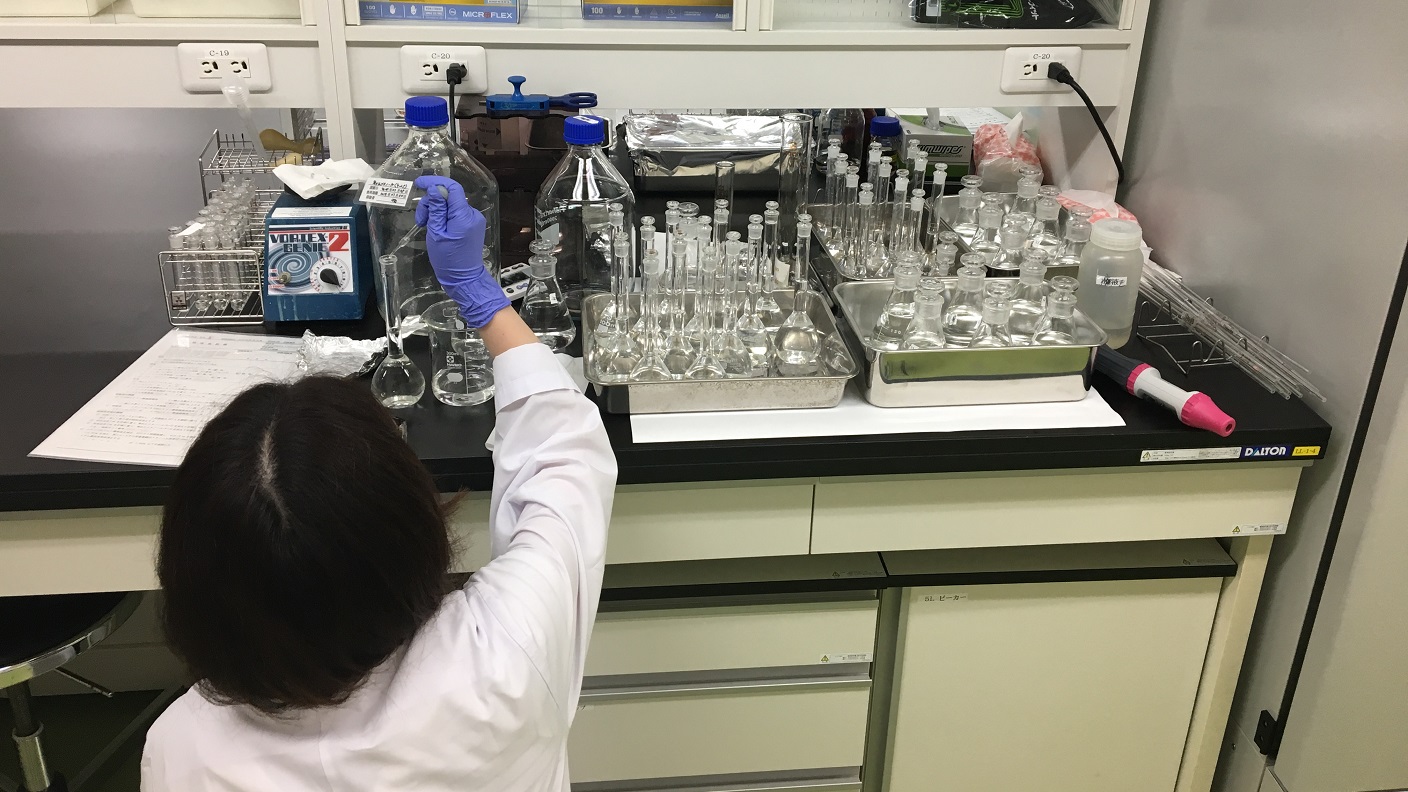
The API Laboratory is divided into two areas: the laboratory and the equipment room. The laboratory is lined with beakers, flasks, and bottles containing reagents, while the equipment room contains electronic microscopes, machines that measure the shape of crystals or the purity of various materials. The API to be screened will be tested according to GMP standards so that no quality issues arise. API safety is a matter of life or death for the people who take them. Ensuring the elimination of all possibilities of danger is the responsibility of companies that are involved in the pharmaceuticals business.
The API Laboratory also contributes to improving the quality of products by providing feedback or proposals for improvement to manufacturers based on analytical results. In addition, they provide training for SPI’s sales representatives, thus enhancing expertise within the company.
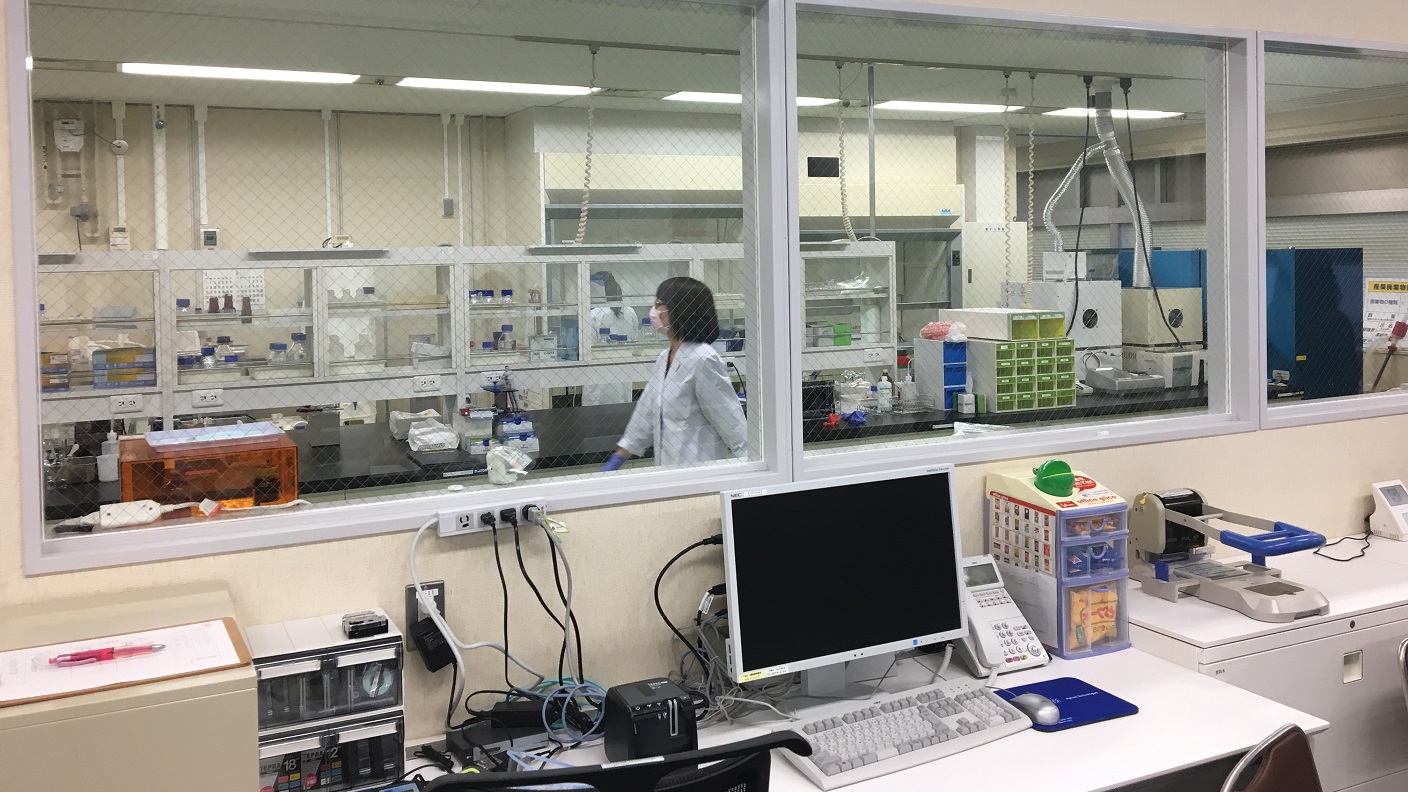
The Yokohama Support Center supports cutting-edge bio-research
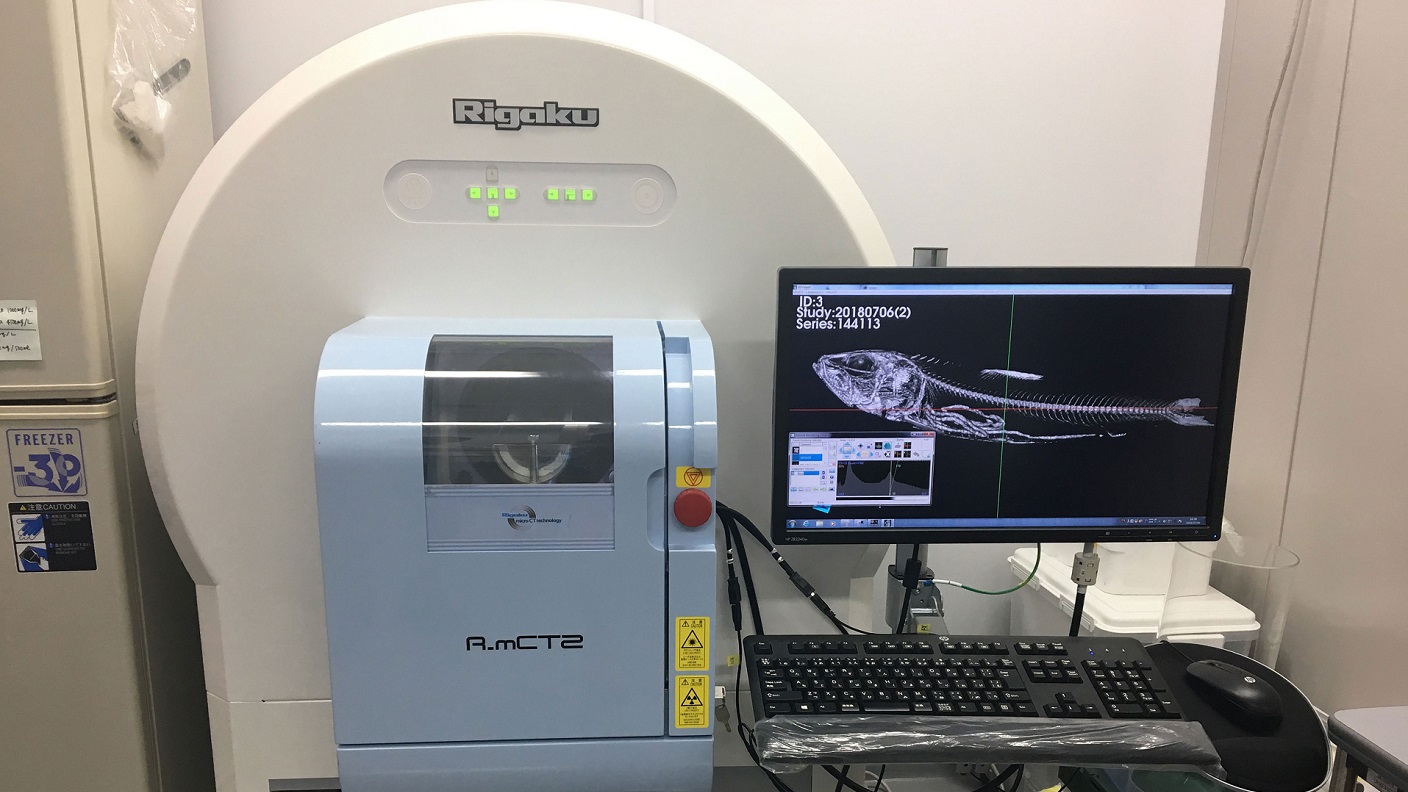
The Yokohama Support Center in Tsurumi-ku, Yokohama City provides a comprehensive client support, to the drug research organizations including pharmaceutical companies and universities, such as demonstrations of instruments for drug discovery research, pre-delivery inspections, after-sale repairs, and responses to inquiries.
One of SPI’s strengths in particular lies in the field of bioimaginginstruments. Bioimaging is a technology used to visualize the inner structure of animals without damaging the body. You may get a better idea of what bioimaging is if you think of CTs, MRIs, and X-rays. By using bioimaging machines, cells and viruses inside the body can be monitored over the long term, thus reducing the number of animals to be used in experiments. We were able to observe demonstrations of CosmoScan, a CT imaging device, as well as the IVIS Imaging System (IVIS), an optical imaging device.
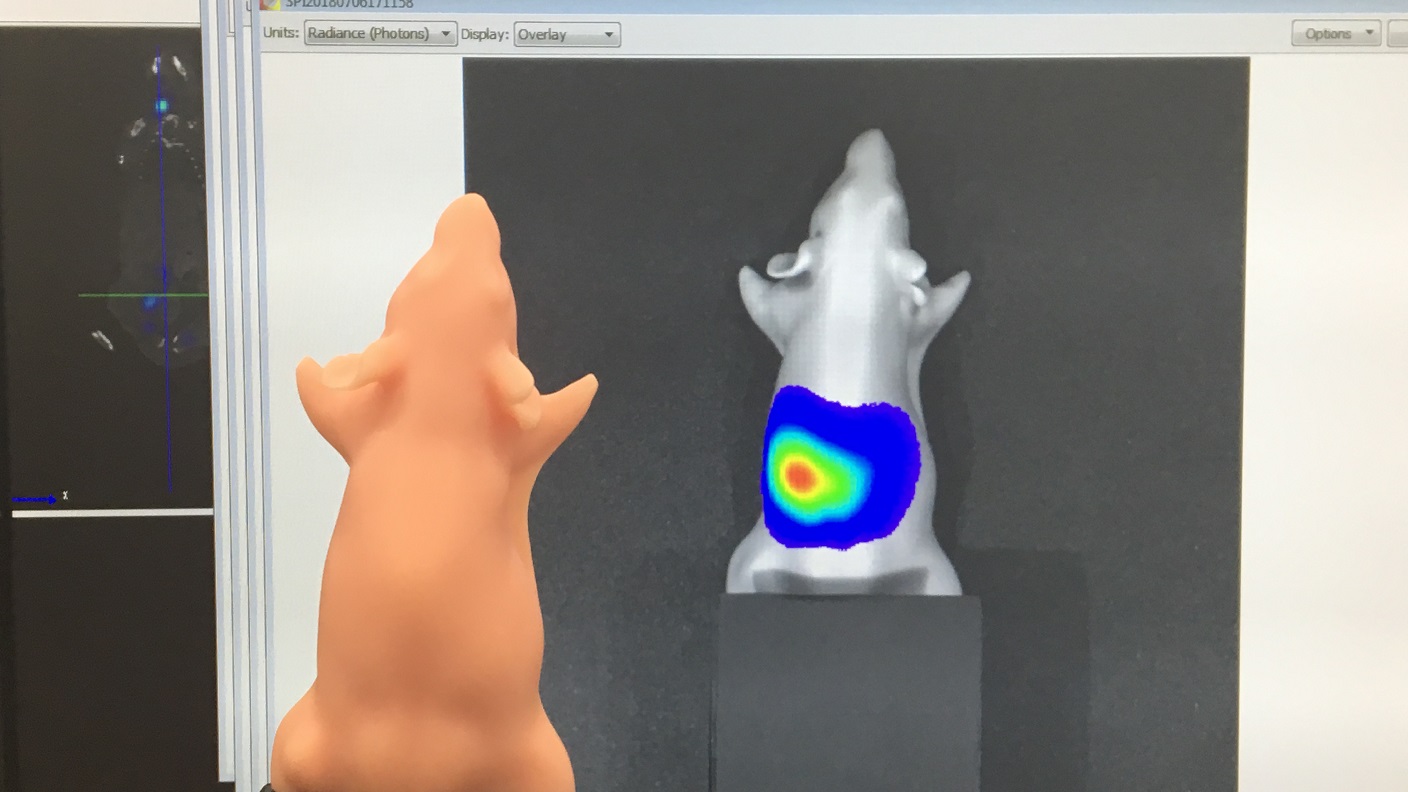
CosmoScan is an instrument that measures the amount of X-rays that penetrate the body of lab animals such as mice and rats, and displays the condition of the bones, fat, or organs as CT images. At its fastest, CosmoScan can obtain images in only 3.9 seconds. Other advantages of the technology include being able to take high-quality and high-resolution images. This technology is used in research on osteoporosis or metabolic syndrome. The demonstration we observed did not use a lab animal but a frozen dried sardine instead. Shortly after the start of the demonstration, the skeleton of the sardine was vividly displayed on the monitor, to which visitors gasped in amazement.
IVIS, on the other hand, is an instrument that employs an ultrasensitive camera to capture faint light emissions or glows that cannot be seen with the naked eye. It quantifies the amount of light and displays it as an image. For example, protein derived from fireflies is introduced into animal cells, and the progress of its growth is monitored with theinstrument. IVIS is used mainly in research on cancer or regenerative medicine, and SPI ranks number one domestically in the introduction of the IVIS Imaging System.
Playing an active role in the development of biotech and pharmaceutical industry
For one drug to be developed and reach our households as a final product, it generally takes over ten years and costs several tens of billions of yen. The development of medicine requires more time and cost than we might imagine, involving many people along with their effort and passion.
SPI discovers the latest or most promising technologies from around the world and introduces them to pharmaceutical companies and research institutions throughout Japan. They deal with various products that support research, from drug ingredients to experimental or analytical equipment. Introducing sophisticated technologies from around the world to Japanese companies and research institutions with advanced technical expertise will not only result in supporting businesses but also contribute to medical development. The business that SPI is engaged in supports our health and medical development in ways that we cannot see.
“Businesses that make a profit over the short term are obviously important. Having said that, it is necessary and very meaningful to explore and develop technology that contributes to progress in medicine or the development of mankind,” said Sayuri Koseki, head of the Yokohama Support Center. These words show the pride and sense of mission from those working at SPI.
